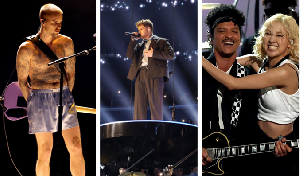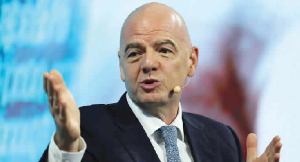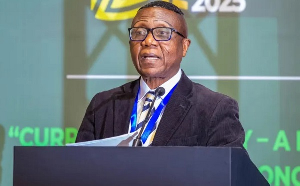The Cedi Foundation, a non-governmental organisation, has donated assorted items to the Childhood Cancer Unit of the Komfo Anokye Teaching Hospital (KATH).
The items, valued at $1,500, included clothing, patient-caps, toothpaste, toothbrushes, and sanitary items.
Mr Lawrence Kofi Frimpong, President of the Foundation, who is a US-based Ghanaian, told the Ghana News Agency that the gesture was to help support needy patients who found it challenging to purchase necessities for survival.
He said the visit was also to establish a strong relationship with the Unit and the Hospital to fight childhood cancers, which were becoming dangerous and deadly.
Mr Frimpong, also the Founder of the NGO, said he had engaged heads of major hospitals like Korle Bu, University of Ghana Medical Centre, KATH, and the Ministry of Health on how to fight childhood cancers in the country.
He said his NGO was working towards procuring portable infrared vein viewers for other health facilities nationwide.
“If we Ghanaians don’t handle our health challenges, no one will do it for us and that is where the idea to seek collective support for our vulnerable children emanated from,” he said.
Earlier, the Cedi Foundation donated $5000 to the KATH Cancer Unit for basic equipment such as scrubs, fridges, uniforms, and other essentials.
Mr Frimpong called on the government to enroll cancer patients onto the National Health Insurance Scheme to mitigate the cost of treatment, especially for parents who found it difficult to fund their children’s treatments.
Dr Vivian Paintsil, Head of Paediatric Oncology Unit, Child Health Directorate, KATH, lauded the Cedi Foundation for its immense contribution to the wellbeing of children at the Unit.
She said the high cost involved in cancer treatment made it challenging for parents to get medications for their children.
Dr Paintsil said meanwhile, treatment brought a recurring cost as sometimes patients had to be on medication for between two to three years.
Childhood cancers occur between birth and 15 years. According to the US Department of Health and Human Services, the common types of childhood cancers include Leukemia, lymphoma, neuroblastoma, retinoblastoma, Wilms tumor, and cancers of the brain, bone, and soft tissue.

Health News of Tuesday, 11 May 2021
Source: GNA
Cedi Foundation supports children with cancer in KATH
Entertainment












